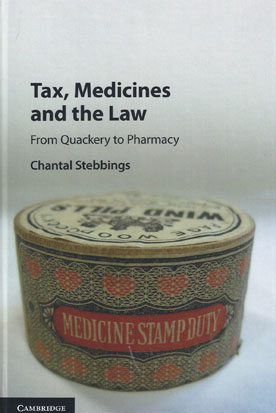
In 1783 a stamp duty was imposed on proprietary or 'quack' medicines. These largely useless but often dangerous remedies were immensely popular.
The tax, which lasted till 1941, was imposed to raise revenue. It failed in its incidental regulatory purpose, had a negative effect in that the stamp was perceived as a guarantee of quality, and a positive effect in encouraging disclosure of the formula.
It promoted the pharmacy profession by recognising chemists and druggists as an occupational group and provoking their unity in opposition, but undermined it by reinforcing their trading character. The legislation imposing the tax was complex, ambiguous and never reformed.
The tax authorities had to administer it, and executive practice came to dominate it. A minor, specialised, low-yield tax is shown to be of real significance in the pharmaceutical context, and of exceptional importance as a model revealing the wider impact of tax law and administration.